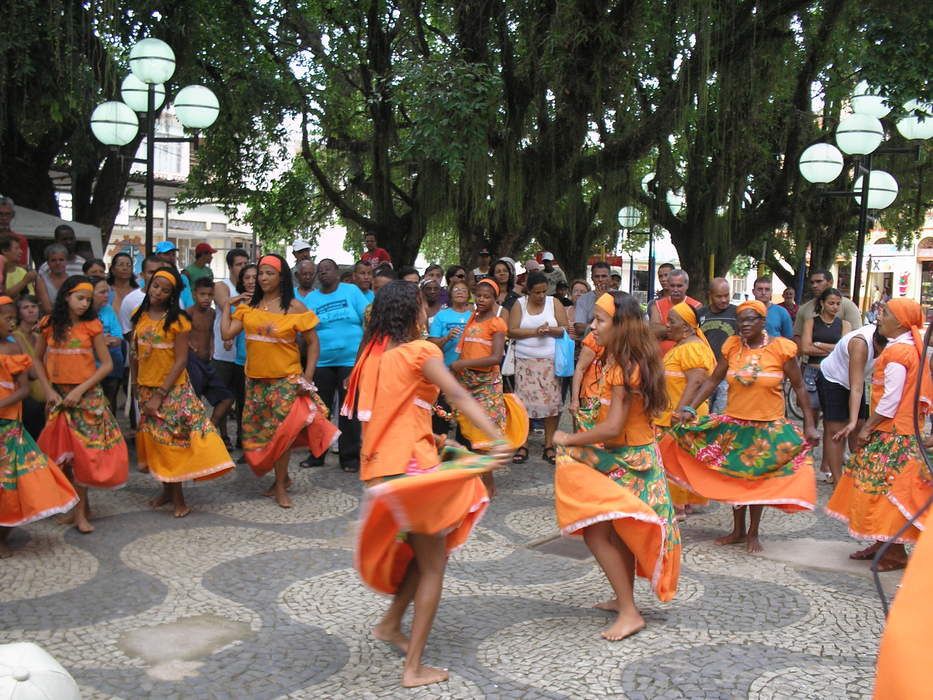Jongo
Jongo ▸ Facts ▸ Comments ▸ News ▸ Videos

Jongo, also known as caxambu or tabu, is a dance and musical genre of black communities from southeast Brazil. It originated from the dances performed by slaves who worked at coffee plantations in the Paraíba Valley, between Rio de Janeiro and São Paulo, and also at farms in some areas of Minas Gerais and Espírito Santo. Jongo is a member of a larger group of Afro-Brazilian dances, such as batuque, tambor de crioula, and zambê, which feature many elements in common, including the use of fire-tuned drums, the call-and-response form of group singing, the poetical language used in the songs, and the umbigada, a distinctive step whereby two dancers hit their bellies.
| 0 shares | ShareTweetSavePostSend |
Jongo festival in Rio calls for cultural preservation Credit: euronews (in English) Duration: 01:00Published | |
You Might Like
No news matches foundSorry, we were unable to find any results in our database for your queryFree news archive accessDid you know? You are eligible to search our news archive with millions of news references free of charge. To do this, please sign in first at the top of the screen. • Information about free access to our news archive Search this site and the web:  |
